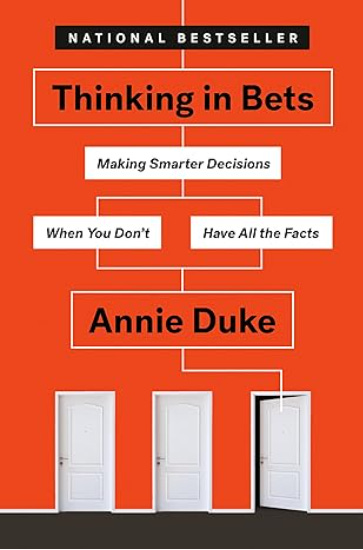We told you.
Warren Buffett told you.
The Wall Street Journal—somewhat ironically—told you, with a pretty bold headline.
How You Can See Through Wall Street’s Ritual of Wrong
So, what are we telling you?
Quit listening to—and getting stressed out by—the “expert” predictions.
We would recommend that you read the WSJ article. But here’s a clip:
Every December, Wall Street predicts what various assets will return over the coming year. Every January, the predictions begin to be proven wrong.
You probably already know that this annual forecasting ritual is absurd. What you might not realize is that it’s also toxic.
. . . How inaccurate are one-year market forecasts? They’re like a person looking in an unlit cavern at midnight for a black cat that isn’t there.
. . . Banks, brokerages and big financial-advisory firms also commonly forecast the one-year returns of other assets, like bonds, gold, commodities, real estate and, more recently, bitcoin. There’s no reason to assume their Ouija boards work any more accurately there than they do for stocks.
However, the purpose of all these predictions isn’t to be accurate. It’s to start conversations with clients and generate trades.
These predictions are powerful sales tools. Wall Street’s forecasts, no matter how wrong they turn out to be, exert a magnetic force on your mind.
This is a pretty gutsy article, especially considering that many of these toxic forecasts are published in the Wall Street Journal.
And, while we covered this in a previous post, let’s take a look at Buffett’s statement again.
Since the basic game is so favorable, I believe it's a terrible mistake to try to dance in and out of it based upon the turn of tarot cards, the predictions of “experts” or the ebb and flow of business activity. The risks of being out of the game are huge compared to the risks of being in it.
Human Nature
Now, when you read these it’s likely you nod along acknowledging the futility of short-term market predictions.
But then, human nature kicks in.
You see an article—possibly in the Wall Street Journal—in which some expert is predicting an imminent stock market crash.
And you begin to worry. What if they’re right?
And, sure, they’ve been calling for a crash and recession for at least the last two years. They’ll get it right eventually, won’t they?
Yes, the market will “crash” again—eventually.
And then what will happen?
As we’ve noted repeatedly, it will recover and go on to set new record highs—provided you’re in a sufficiently diversified portfolio (preferably a market-cap-weighted index that “rides the winners,” like the S&P 500).
Unfortunately, this recovery process—while inevitable—takes time.
Getting through this takes both patience and confidence. Gaining confidence requires knowledge and understanding.
Which is the point of all of these posts.
Repeating the Message
If you’ve read enough of our posts, you’ll notice some overlapping of the messaging, though viewed with different perspectives.
The reason for this is related to how we convert information into beliefs.
In her excellent book Thinking in Bets: Making Smarter Decisions When You Don't Have All the Facts, Annie Duke writes:
This is how we think we form abstract beliefs:
(1) We hear something;
(2) We think about it and vet it, determining whether it is true or false; only after that
(3) We form our belief.
It turns out, though, that we actually form abstract beliefs this way:
(1) We hear something;
(2) We believe it to be true;
(3) Only sometimes, later, if we have the time or the inclination, we think about it and vet it, determining whether it is, in fact, true or false.
You’ve no doubt noticed this in others—even if you’ve yet to admit that you’re susceptible yourself:)
We’re particularly predisposed to believe things that fit our world view and reject those that don’t. To accept the notion that we might be wrong doesn’t do much for our self-esteem.
So, in a world where stocks are constantly presented as “risky,” we tend to believe it without vetting it.
For those of you who have been willing to consider our position that risk is dependent on timeframe—and that, for example, stocks are the least risky asset for the long-term investor—you have done something rather remarkable.
You have begun to question the constant flow of toxic information rather than accept it without thought.
As you continue to do this, you move closer to our stated goal of More Money; Less Stress.
Best regards,
Stuart & Sharon





